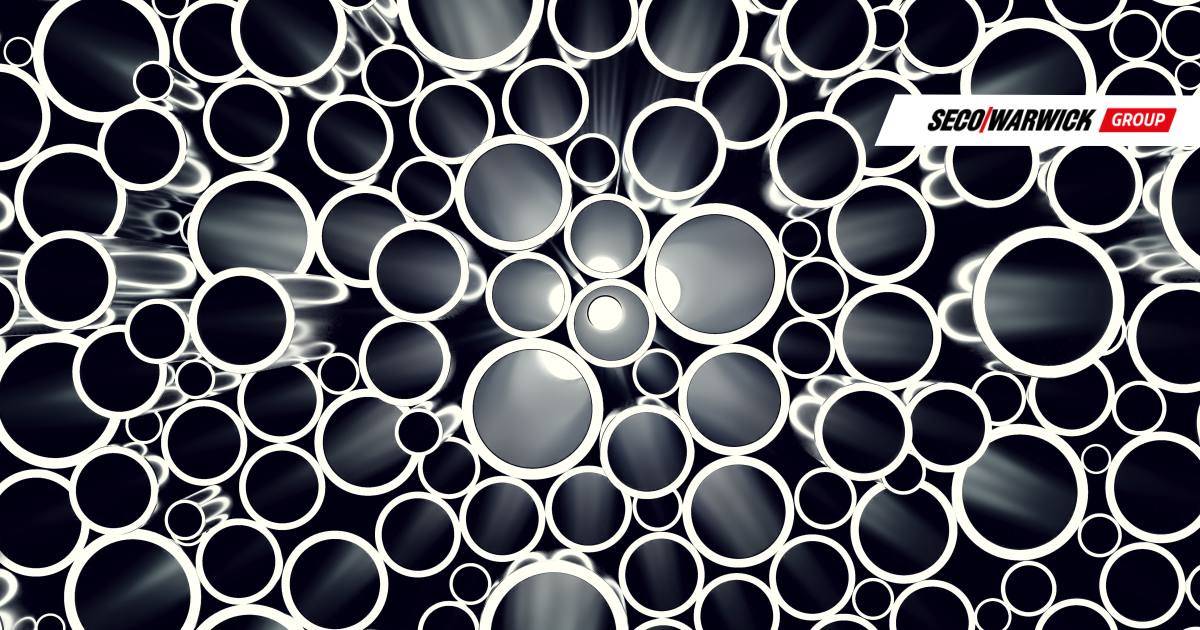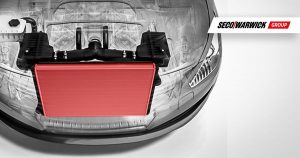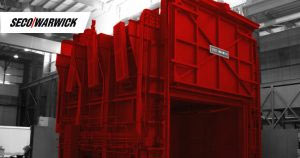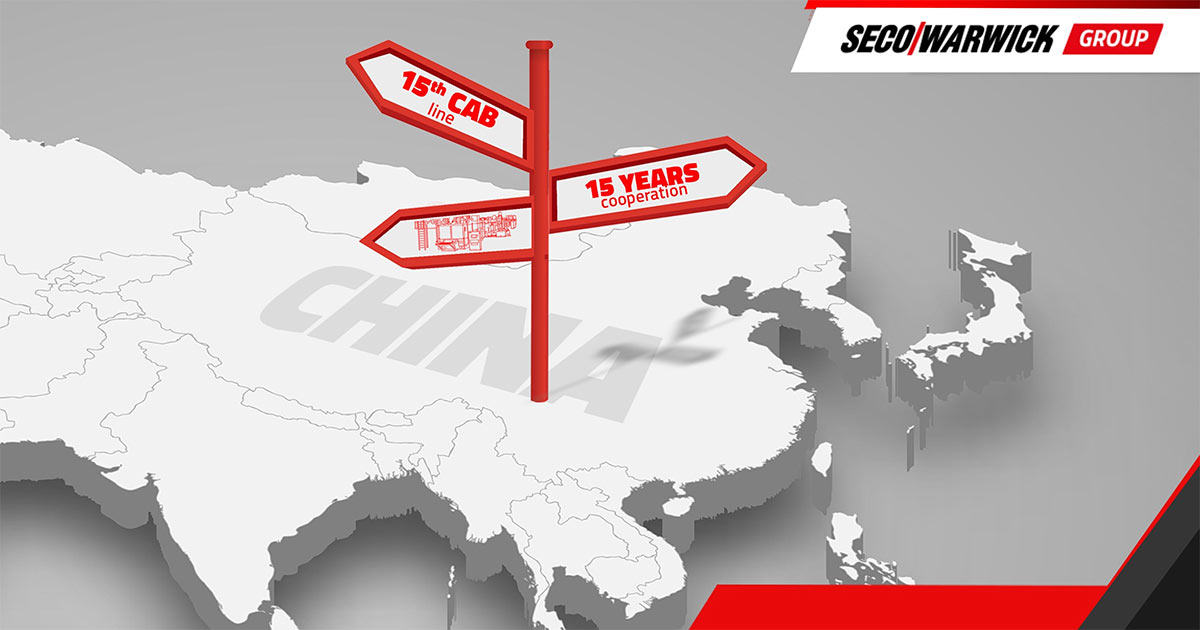A Virginia manufacturer of high-quality plumbing tube recently commissioned a new SECO/WARWICK solution heat treat furnace, expanding the plant’s capabilities to include aluminum extrusions. This is the first new aluminum processing equipment installation at the plant.

Unique configuration of the furnace for the solution of aluminum from SECO/WARWICK
The furnace configuration is unique. Tubing extrusions and other shapes up to 26 feet in length are loaded horizontally at floor level into a load carriage. The carriage containing the load is then pulled by a hoist, from one end until it is vertical next to the furnace. The carriage is then secured to the supporting structure, allowing the hoist to lower the down, and out of the carriage. The load is lowered into a powered rotating carousel, containing two (2) submerged drywells that extend below the floor into the water-filled pit. The load is then supported by the carousel, allowing the hoist to be released. The carousel then rotates until the load is in a position directly below the furnace. The furnace door opens, and a 2nd hoist retrieves the load, pulling it up into the furnace chamber for heating.
After heating, the furnace door opens and the load is lowered into one of two open positions in the carousel, allowing the load to quickly cool in the water-filled pit below. The vertical orientation of the work being heat-treated is what differentiates this unit from others. The design allows the customer to maintain an efficient, semi-continuous process with little downtime between batches by staging loads in the drywells.
Rapid Quench Assures Highest Part Quality
The major benefit of this design is that it allows the customer to drop extrusions into the quench within 10 seconds after heat treating and soak. The rapid quench is done quickly to “lock-in” the hardening elements of the alloy. By heating the work up to a temperature slightly below the melting point, or solid solution (solvus), the hardening elements will disperse throughout the cross section of the work.
After cooling is complete the load is raised up out of the water and released back to the carousel. The carousel then rotates until the load is returned to the position under the load carriage. The 1st hoist then pulls the load back up into the carriage, retrieving the carriage and load simultaneously. The carriage is then lowered back down to the plant floor, traversing from vertical to horizontal as it’s lowered. Once back at floor level the finished load is removed from the carriage and the next load to be treated is placed in the carriage. Loads can be staged in the drywells as the furnace is cycling, so the furnace can be unloaded and reloaded in just a few minutes.
“While SECO/WARWICK has patented many standard processes related to aluminium heat treatment and controlled atmosphere brazing, our strengths lie fundamentally in our ability to apply innovative designs to custom requirements, something I believe we do as well as anyone in the world. This is but one good example of the type of work we excel in,” said Keith Boeckenhauer, Managing Director SECO/WARWICK USA.
5x Better Temperature Uniformity
The new SECO/WARWICK furnace, designed and built in Pennsylvania, was engineered to meet a minimum uniformity specification of +/- 10° F. Once the furnace was commissioned, the customer brought in a third party to survey its performance and documented the actual uniformity at +/- 1.5 – 2° F. So, by having the tight uniformity capability, the temperature can be set closer to the solvus range without concern for melting the work, allowing for optimum solution treatment.
The customer stated that, as part of their initiative to diversify from traditional HVAC products into more precision engineered components, it was critical that they chose the right partner to implement this expansion project with aluminum extrusions. They selected SECO/WARWICK based on their proven track record with this type of furnace and their ability to customize the project according to our needs. The excellent and repeatable temperature uniformity achieved with this furnace will allow the customer the ability to market products to the aerospace and medical fields by meeting Class 1 requirements.






